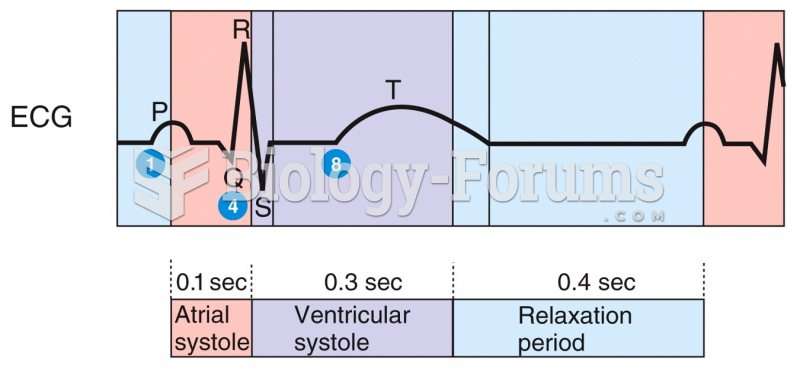|
|
|
By definition, when a medication is administered intravenously, its bioavailability is 100%.
The first oncogene was discovered in 1970 and was termed SRC (pronounced "SARK").
During the twentieth century, a variant of the metric system was used in Russia and France in which the base unit of mass was the tonne. Instead of kilograms, this system used millitonnes (mt).
An identified risk factor for osteoporosis is the intake of excessive amounts of vitamin A. Dietary intake of approximately double the recommended daily amount of vitamin A, by women, has been shown to reduce bone mineral density and increase the chances for hip fractures compared with women who consumed the recommended daily amount (or less) of vitamin A.
In 1844, Charles Goodyear obtained the first patent for a rubber condom.







